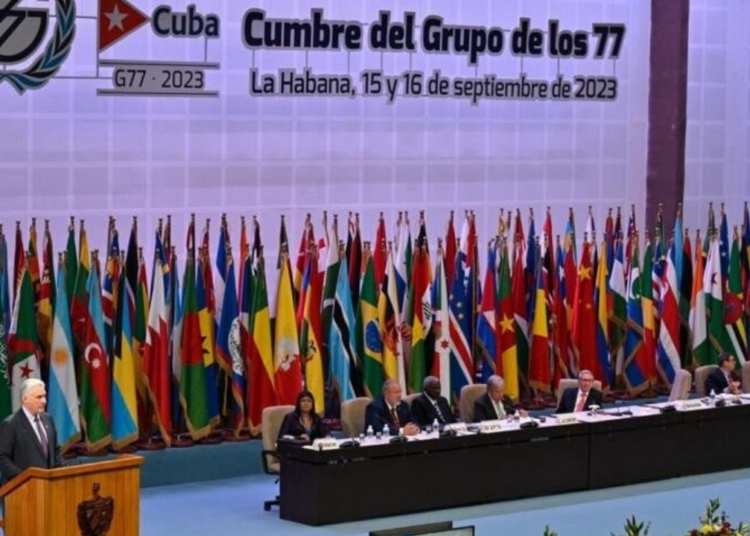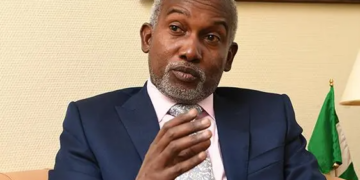The Group of 77 developing countries and China (G-77+China) has called for a new global order at the end of a two-day summit in Havana, Cuba on Saturday.
The G77 and China is a bloc of countries from the Global South, representing 80% of the world’s population.
Established in 1964 to advance the collective economic interests of the Global South, the bloc has since expanded to include 134 members.
A number of Latin American leaders were present at the summit including Brazilian President Luiz Inacio Lula da Silva, Venezuela’s Nicolas Maduro, Colombia’s Gustavo Petro, and Argentina’s Alberto Fernandez.
Other world leaders who attended include Angolan President Joao Lourenco and Mozambican President Filipe Nyusi and Palestinian Authority leader Mahmoud Abbas as well as Vice President Kashim Shettima of Nigeria.
The Cuban President and Chairman of the group, Miguel Diaz-Canel, said the North has organised the world according to its interests and it is “now up to the South to change the rules of the game.”
Diaz-Canel said developing countries were the main victims of a “multidimensional crisis” in the world today, which ranged from “abusive unequal trade” to global warming.
Speaking at the summit, the United Nations (UN) Secretary General, Antonio Guterres called for nations to build a world that is more fair for developing countries.
Guterres said while many of the countries of the G77 have helped lift millions of people from poverty, they still face a lot of crises, including hunger, inflation, climate disasters and debt, and they have not gotten enough help.
“The conclusion is clear: The world is failing developing countries. The voice of the G77 plus China will always be essential at the United Nations.
“I count on your group, who have long been champions of multilateralism, to step up, to use your power, and fight: Champion a system rooted in equality; champion a system ready to reverse the injustice and neglect of centuries.”
On his part, President Xi Jinping of China, said South-South cooperation is always a high priority in the country’s cooperation with other countries.
Represented by a member of the Standing Committee of the Political Bureau of the Communist Party of China Central Committee, Li Xi, he said China is the world’s largest developing nation and a natural member of the Global South.
“We are ready to work with Cuba and other G77 members to open a new chapter in South-South cooperation in quest for greater development through stronger solidarity, build a Global South community with a shared future, and usher in a new era of common development.
“We must continue to make our voice heard loud and clear at the UNGA and other major international fora and events. We must speak up for justice, and see to it that items on the agenda of the United Nations meet the development interests of developing countries.
“We must call on the entire international community to place development front and center on the international agenda. And we must urge developed countries to deliver on their development assistance commitments.
“We must strengthen the voice and representation of developing countries in global governance based on the principles of extensive consultation, joint contribution and shared benefits,” he said.
The Embassy of Republic of Cuba in Nigeria had in an statement made available to LEADERSHIP ahead of the summit said Cuba has set in motion numerous cooperation projects in several countries of the South since it took over the chairmanship of G77+China on January 12, 2023.
According to the statement, the “Yes, I Can” project implemented by Cuban cooperation workers in Bolivia, Venezuela, Ecuador and Nicaragua, among other countries, thousands of Latin American and Caribbean persons have rid themselves of the darkness of ignorance.
“The largest of all Caribbean islands has also offered significant assistance in areas such as health, by deploying tens of thousands of professionals throughout all continents. These actions have also included the training of professionals both in Cuba as well as in their home country, which has been widely recognized by the World Health Organisation.”





